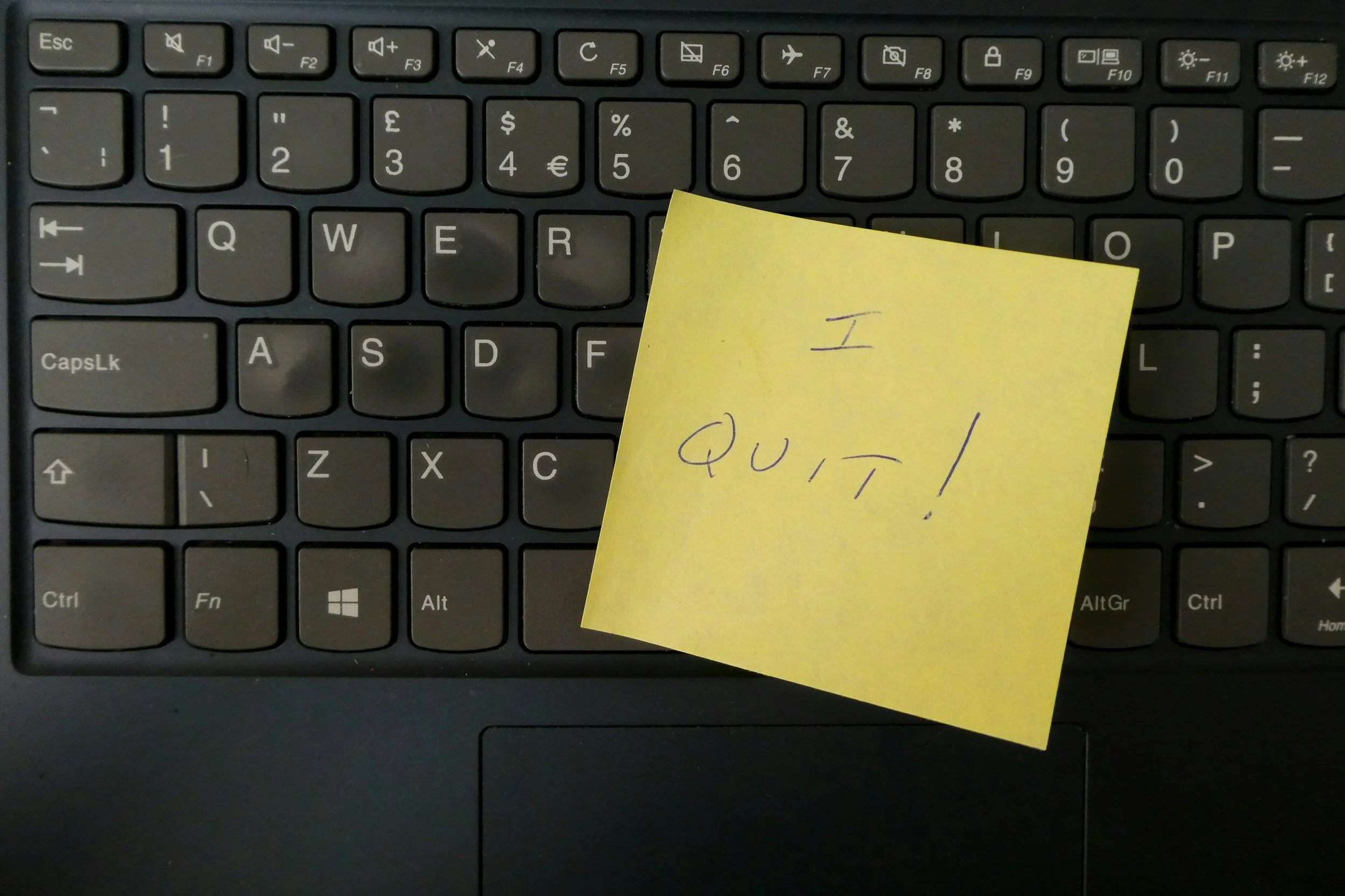WHY QUITTING IS NOT ALWAYS A BAD THING
In a world that celebrates persistence and grit, the idea of quitting often carries a negative stigma. We’re conditioned to believe that if we give up on something, it’s a sign of failure, a lack of resilience or commitment, or a weakness in character. However, quitting is sometimes a smart and necessary choice—one that can empower us to open doors, freeing us from unhealthy situations, and leading us toward a more fulfilling life. Let’s explore why quitting isn’t always a bad thing and, in many cases, can be the healthiest decision we can make.
1. Quitting Creates Space for New Opportunities
Every commitment we make—whether to a job, relationship, or hobby—takes up time, energy, and mental space. When we hang on to things that no longer serve us, we fill our lives with activities and responsibilities that block us from exploring new opportunities. By letting go, we create room for other pursuits that might better align with our goals and passions. Quitting can be a way of clearing out the old to make way for the new.
2. It’s Not a Failure; It’s a Redirection
Quitting doesn’t always mean giving up on your dreams. Sometimes, it’s about finding a better path to reach them. For example, if you’re in a job that’s draining your energy and passion, quitting doesn’t mean abandoning your career goals. Instead, it could mean you’re redirecting your efforts toward a role that better matches your skills, interests, and values. Redirection is part of growth, and quitting something misaligned with your goals is often a step toward a better, more meaningful destination.
3. Protecting Your Mental Health and Well-Being
Persisting in situations that cause chronic stress, unhappiness, or even physical illness can take a toll on your mental health. Studies show that toxic work environments, unsupportive relationships, or goals that clash with our personal values can lead to burnout, anxiety, and depression. Quitting can be a way to protect your well-being by stepping away from situations that negatively impact your health. In this sense, quitting isn’t a weakness; it’s an act of self-care.
4. Learning to Let Go of Sunk Costs
The “sunk cost fallacy” is a cognitive bias where we continue investing time, money, or energy into something simply because we’ve already invested so much. It’s a common reason people stay in situations they don’t enjoy—like a dead-end job, a love-less relationship, or a fruitless project—thinking they’d be wasting their past efforts if they quit. However, once we’ve spent those resources, they’re gone. Quitting helps us move on without being trapped by past decisions, allowing us to make choices based on what’s best for us now and in the future.
5. Quitting Builds Self-Awareness and Courage
Quitting can be challenging because it forces us to confront our own needs, desires, and boundaries. Deciding to walk away from something requires self-awareness and the courage to prioritise ourselves, even if others don’t fully understand or support us. Each time we choose to leave behind what no longer serves us, we strengthen our ability to recognise and honor our own worth. In this way, quitting can help us develop a stronger sense of identity and a greater willingness to stand up for our values.
6. Embracing Change and Adaptability
Life rarely goes according to plan, and adaptability is one of the most valuable skills we can develop. Quitting can be a step toward embracing change, rather than fearing it. When we learn to pivot—whether that’s by changing careers, rethinking our social circles, or reshaping personal goals—we become more resilient and open to new experiences. Quitting can help us adapt to life’s twists and turns, making us more capable of navigating an uncertain world.
7. Quitting Isn’t Always Permanent
Sometimes, quitting is just a pause. Stepping away from a project, a job, or even a relationship doesn’t necessarily mean we’ll never revisit it. Taking a break can give us time to recharge, refocus, and reflect on what we really want. Many people have found that taking time away allows them to return to old pursuits with a fresh perspective and renewed enthusiasm. In these cases, quitting can be a temporary reprieve that leads to a more sustainable long-term commitment.
Changing the Narrative Around Quitting
In a culture that celebrates persistence, quitting often feels like breaking an unspoken rule. But if we look at quitting not as an ending, but as a transition or a pivot, we can see it for what it truly is: an opportunity to let go of what’s holding us back and to pursue what really matters. By reframing quitting as a positive, deliberate choice, we give ourselves permission to prioritise our well-being and pursue growth.
Final Thoughts
Quitting isn’t always a bad thing; in fact, it can be one of the healthiest choices we make. It takes courage and clarity to walk away from things that don’t serve us, but by doing so, we open up space for new opportunities and experiences that align with our true selves. So the next time you’re considering quitting, ask yourself: Is this something worth holding onto, or would letting go lead to something better? Sometimes, choosing to quit is the bravest step on the path to a richer, more fulfilling life.




